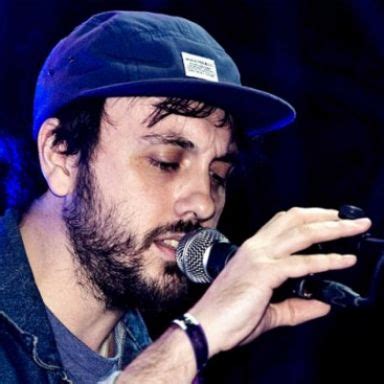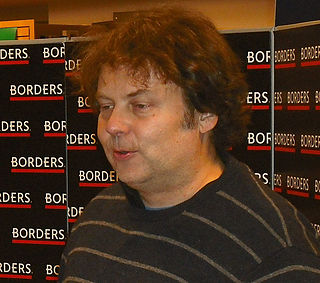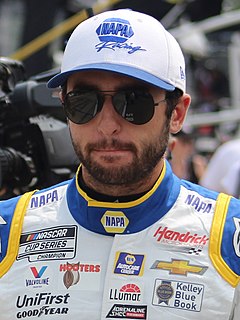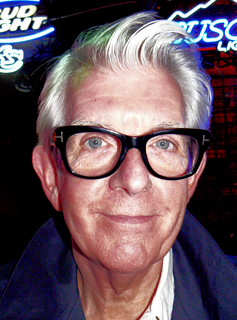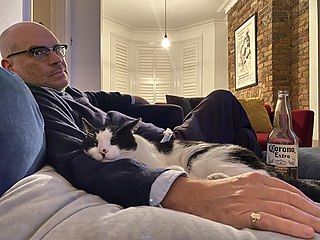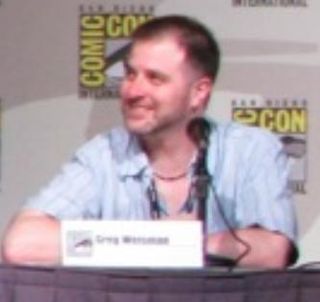A Quote by Kenneth Koch
Once I start writing about something, it goes off rather fast, and sometimes details which might be interesting such as what the room looked like or what somebody said that was not exactly on the same subject tend to get lost.
Related Quotes
Sometimes when you write something, you have that day when you start writing and you feel really good, and you start changing it. At the end, it lost the essence. It lost the first idea, the energy that it had, it's going down after every change. And at the end it's something soft and too much rewritten or too much rebuilt that doesn't have the same energy as the beginning. So, I like the first takes because of that, you know. It has that first energy that sometimes it's difficult to recreate.
My mind goes really quickly and I tend to talk really fast, as you've probably heard, I sometimes lose track of my syntax, as I'm talking that fast. The only thing I try to do, well, it's slow down, but also I do something when I'm reading that's similar to when I'm writing a section, which is to really try to imagine you on the other side, in a certain way, as an intelligent, sympathetic presence who's rooting for me to tell you a good story.
When I was little, I met Ronald Reagan. I think I said something to him. He was talking about somebody - he said somebody was like the Clint Eastwood of something, and I said, "I thought he was the Arnold Schwarzenegger," or "more like Arnold Schwarzenegger." He just looked at me like I was crazy. He didn't know what I was talking about.
And as Craig Brown - he's an English humorist, not a comedian but he's just a writer and humorist - I'm quite a fan of. I heard him talking in a rather similar way on the radio. He said I'm the sort of person - I can't remember exactly what he said, but it was rather interesting - he said I'm the sort of person that can be reduced to tears in an empty church and feel like I'm the CEO of the Devil's organization in a full one, and I tend to feel like that as well. I love empty churches and going into them looking around, but I'm not a churchgoer at all.
Ever since high school I've been writing in a spiral notebook, in pencil. Everything looks too polished on a computer when you start writing, and I can't really see it. I feel like the words are much more naked in pencil, on a notebook. I feel that my brain works differently, and words come out differently, if I have a pencil in my hand, rather than if I have a keyboard. I tend to add more in the margins. I tend to elongate the sentences as I'm writing and editing, and there is just something about the feeling of writing longhand that I really love.
I didn't have any aspirations of becoming famous or successful; in fact I was scared to death of all that. I remember somebody once said that if a rock musician goes on tour, he goes insane. I was very impressionable and I carried this useless weight of fear around with me about going on tour, all because of this thing somebody said.
Sometimes I have experienced at the start of a film you're very excited and enthusiastic and you've done all your preparation internally and externally and you start the film and it's all go... Then your attention goes somewhere else. Your energy goes into telling the story, so you don't have the same amount of energy to be objective, and that's okay because sometimes you become a subject of the story and you're inside it so much that you don't need to keep on looking on the outside.
Like a lot of us, sometimes I'm preaching to the choir, and sometimes my voice doesn't even get heard at all. Sometimes I think that what I'm writing now might not even have an impact for the next three or four generations. Sometimes I sit there and write, and I think, "It'll be two hundred years before they get what I'm writing about."
I had co-written one episode of an animated show called Jem and the Holograms. Which at the time I didn't view as the start of a career, I viewed it as, "Hey, someone wants to pay me to write something, and I might get a TV credit, isn't that cool?" So I did it with my writing partner at the time, Cary Bates, and it was interesting but it didn't lead to anything and I didn't think too much about it.


